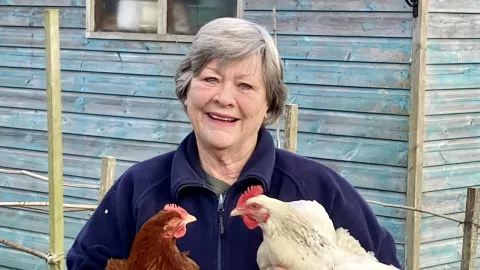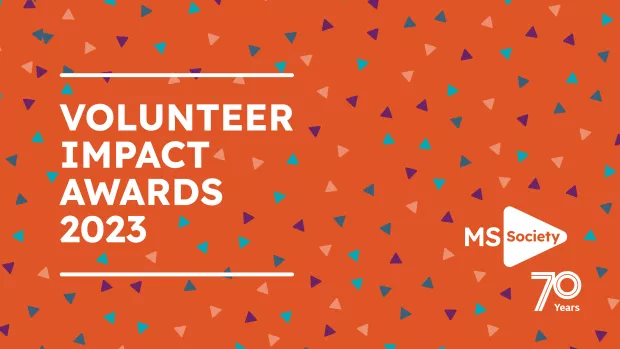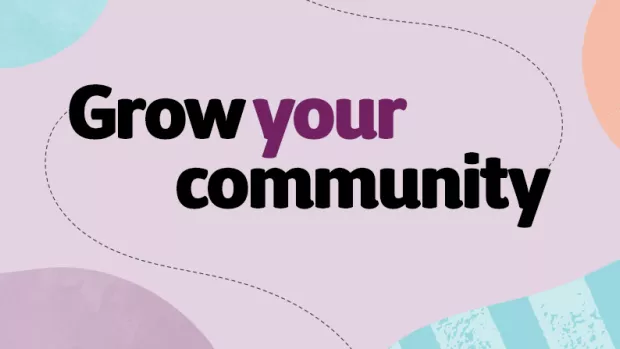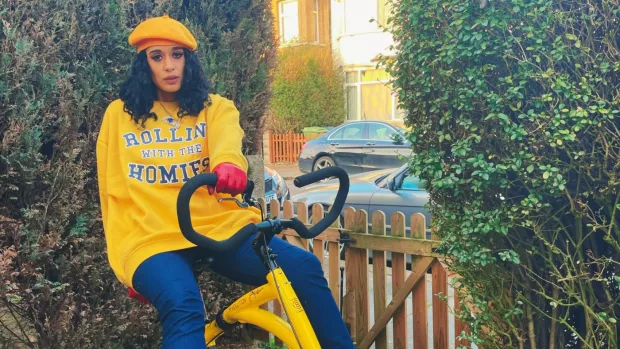
“I’ve made the most amazing friends and met some truly extraordinary people”
Caroline co-founded our Lymington and New Forest Group and set up support groups for male carers across Hampshire. She tells us about these, and her future hopes to help the local MS community.
I’m a retired Occupational Therapist with two grown-up daughters. My late sister-in-law had a very aggressive form of MS (long before modern drugs) and died. And then my niece, now in her 30s, was diagnosed with MS at age 14.
While I was still working, patients told me that there was no support for those with MS in the area. After a survey, a social worker and I held an open meeting in 1989. About 30 people came and the ‘branch’ (as it was then called) was born!
Making everybody welcome
35 years later, as the Lymington and New Forest MS Group, we’re unrecognisable from that early branch.
We offer Pilates and yoga — welcoming carers and partners as well, to help them keep fit and feel included.
We have a monthly Coffee Get Together, also including any carer or partner who wants to stay. With luck, the MS nurse attends to answer any questions and lead a discussion. But mostly it’s a LOT of chat over coffee and very good cakes!
We also have relationships with organisations such as the New Forest Disability Service, for help with benefits advice and signposting to other services. Through our newsletters, we keep 200 people informed about what we can offer.
Overcoming challenges
Being in a very rural area, geography is always a challenge. We try to ensure our meetings are central, but we use further-out locations now and then.
I always worry about where the next lot of funding will come from. But somehow it does turn up — either from our own efforts or from local organisations. Our own members’ support is amazing.
Controversially, we don’t charge for any of our activities as we don’t want cost to prevent anyone, perhaps living on benefits, from attending. So, people always support our fundraising and make generous donations.
Pushing for improvements
My biggest frustration has been not having our own MS community nurse. Not for want of asking over many years! I’ve battered against NHS management until I feel I can no longer be civil about it. We do now have a fortnightly clinic with the MS nurse in the local hospital, which makes a big difference. She also attends our coffee meet-ups when she can.
Another long-held dream of mine is to develop a partnership with the local hospice — particularly for home support for those with advanced MS, who can get a poor service from the NHS. District nurses are wonderful but too stretched and not specialist.
There is hope. My eldest daughter is one of the palliative care consultants locally, so I’ve put pressure on her. They already have a service for MND and Parkinson’s, so why not MS? Especially when I’ve got my teeth on the bit!
Caring about carers
14 years ago I was teaching fatigue management. I listened to many of the women grumbling about their husbands not understanding their MS. And I wondered who might be listening to the men? In those days, carers and partners received little attention.
Encouraged by some of the wives, I put on a taster session in the New Forest for male partners and carers. If successful, my plan was to run a group for six months, and then leave it to carry on and start another elsewhere.
The first group took off, although it quickly became apparent that I needed to return as facilitator, as talk disintegrated into football and sex! Eventually, funded by a legacy, I established four groups across Hampshire for working-age men.
Creating a community
The men's monthly meetings are very informal — a free meal in a pub, in a private room if possible. Each group has a maximum of nine men, so the conversation is group-based and not fragmented.
The men share information and advice, empathy and non-judgmental understanding. Everything is confidential, and they discuss anything within the group comfort zone.
The men relish being able to share, discover they’re not alone and learn from each other. They have an evening a month feeling they’re with their people. There are a lot of laughs as well as tears.
Since the legacy money ran out, many people have helped to raise funds to keep the groups going.
If there’s something I’m most proud of achieving as a volunteer, then this is it. I know from all the stories over the years that the groups have made a big difference. I’ve stepped away from facilitating meetings now, but am still supporting the groups in the background and involved with the finances.
Find what suits you best
If you’re thinking about volunteering — try it! Go to different activities and find what suits you best. You’ll make friends, do something worthwhile, laugh and cry. I’ve made the most amazing friends and met some truly extraordinary people. What else offers you that?



